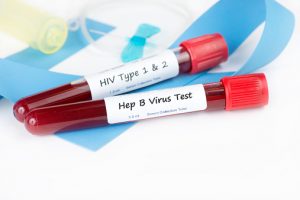 To add impetus to World Hepatitis Day on July 28, the World Health Organization (WHO) will launch its flagship event in Egypt, a country that has one of the world’s highest rates of hepatitis cases.
To add impetus to World Hepatitis Day on July 28, the World Health Organization (WHO) will launch its flagship event in Egypt, a country that has one of the world’s highest rates of hepatitis cases.
WHO will work with the health authorities in Egypt to develop national blood safety standards. Egypt is one of three countries in a pilot project for WHO’s new Global Injection Safety Initiative.
Advertisement
The project will provide support over the next three years to reduce unnecessary injections and help transition to the exclusive use of syringes that can only be used once.
About two-million hepatitis cases every year result from unsafe injections. These kind of infections can easily be averted by using disposable syringes. Also wherever possible, oral medication should be chosen over injections, said WHO officials.
While Egypt is a top priority, WHO urges every country to reinforce all action to prevent viral hepatitis infection and to ensure that infected people are quickly diagnosed and treated accordingly.
This year, WHO is asking health authorities to focus especially on hepatitis B and C, which together cause about 80 percent of all liver cancer deaths and are responsible for 1.4-million deaths every year.
The organization urges all health services to reduce risks by using either disposable, or completely sterile equipment for injections or other medical procedures.
The message also includes testing of all donated blood and blood components for hepatitis B and C (as well as HIV and syphilis) and to promote the use of the hepatitis B vaccine. Safer sex practices, including minimizing the number of partners and using barrier protective measures (condoms), also protect against hepatitis transmission.
Since 1982, more than one-billion doses of the hepatitis B vaccine have been used worldwide and millions of future deaths from liver cancer and cirrhosis have been averted. In a number of countries, vaccination has reduced the rate of chronic hepatitis B infection from one in 10 cases to less than one in 100 among immunized children. However, there is no available vaccine against hepatitis C.
Advertisement
Medicines are now available that can cure most people with hepatitis C and control hepatitis B infection. WHO urges people who think they might have been exposed to hepatitis to get tested and treated accordingly
Currently WHO recommends two safe and highly effective medicines, tenofovir or entecavir. WHO will update recommendations on drug treatments periodically as new antiviral medicines become available and as new evidence emerges.
Source:
http://www.who.int/mediacentre/news/releases/2015/world-hepatitis-day/en/
